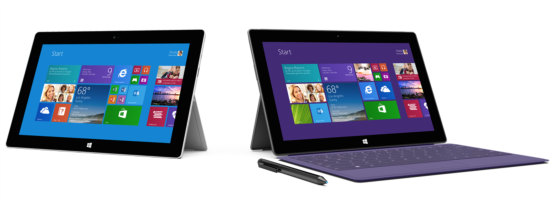 When the iPad was originally launched, tablet devices were launched into the limelight. It goes without saying that Apple were not the first, but they made this category of device sexy and created an experience that many did not know they wanted, until they had handled one of these new wonders. Since the first generation iPad was so successful, many other manufacturers frantically played catchup.
When the iPad was originally launched, tablet devices were launched into the limelight. It goes without saying that Apple were not the first, but they made this category of device sexy and created an experience that many did not know they wanted, until they had handled one of these new wonders. Since the first generation iPad was so successful, many other manufacturers frantically played catchup.
To a certain degree they have, with many manufacturers backing the Google Android platform. Whilst the hardware may not be as sexy, the ecosystem is definitely developing. The selection of apps on the Google Play Store is now more than acceptable, making the myriad of devices from the likes of Samsung, Asus and Acer (to name just a few) very viable options. My personal opinion is that they are not quite as tied in service-wise, whereas the Apple iPad is very good at synchronising with the likes of an Apple desktop or laptop.
This new category, for a long time, has been thought of as an ideal way of consuming media, but not necessarily creating. Things are pretty good, with regard to photo manipulation, simple spreadsheets, text documents and the like, but anything more than that is often a compromise. I do take notes on my iPad, but anything more than that and I grab my laptop, or sit down at a desktop computer.
Whilst these two platforms battle it out, Microsoft is sitting in the wings. It dipped its toe into the water with the Surface RT and Surface Pro, which were a hard sell due to lack of apps. However, with their most recent offerings, the Surface 2 and Pro 2, things have improved. Apps that were missing first time around are now appearing with around half of the mainstream titles not available at original launch, now in the Windows App Store.
Whichever platform you choose, all of these devices have something in common. They are all great entertainment devices. Awesome for playing back videos, music, playing games etc. The internet browsers add yet another dimension and allow you to play online games. You might even be able to increase your riches too, by trying your luck at Blackjack, Slots or Roulette on Casino.com who, like many websites, have enriched their experience for mobile devices. So whether it's online shopping, emails, surfing the internet or staying in touch with friends & family, this new breed of tablet device is here to stay and I am certainly thankful that Apple made this category popular again.











